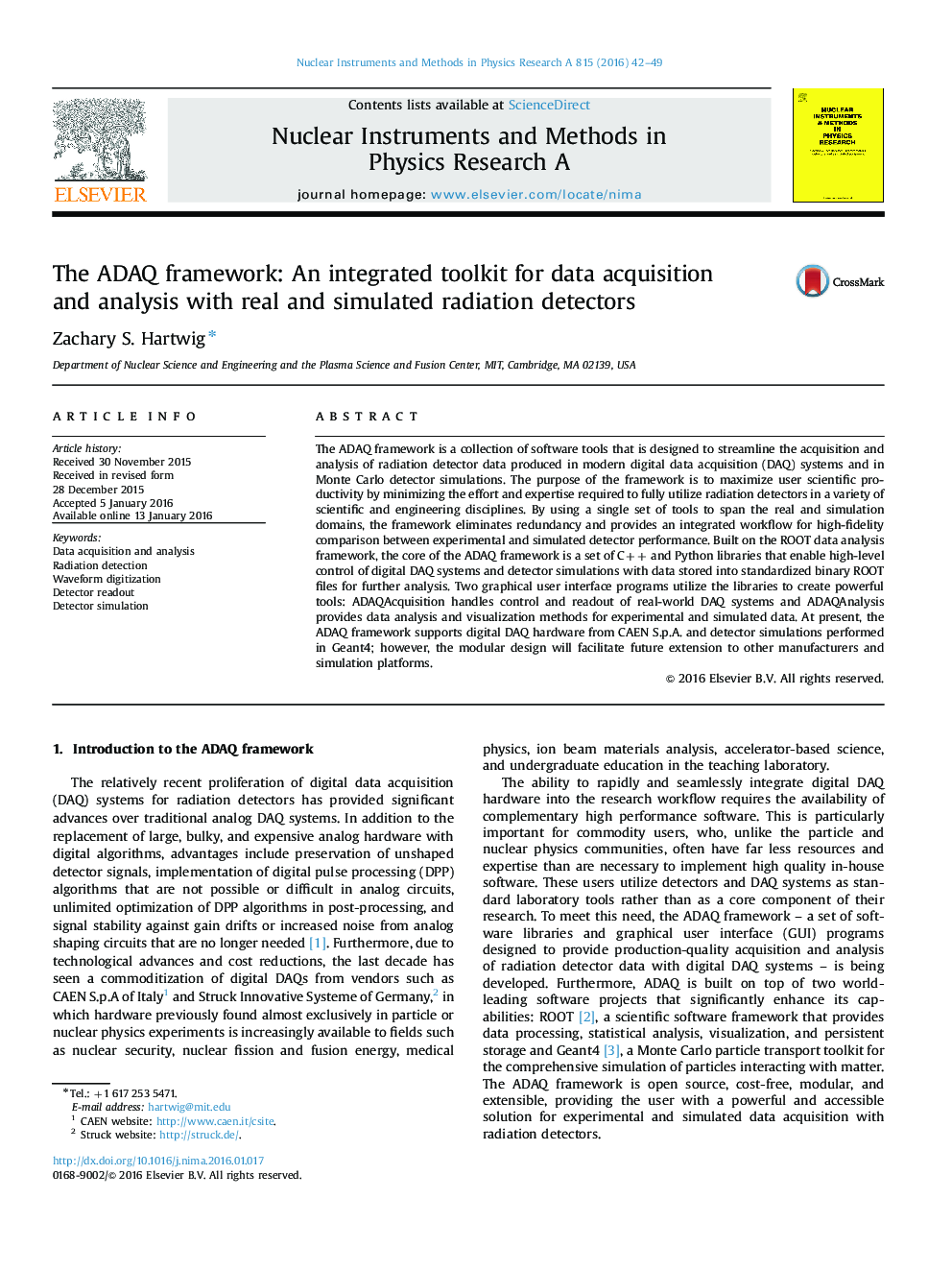| Article ID | Journal | Published Year | Pages | File Type |
|---|---|---|---|---|
| 1822100 | Nuclear Instruments and Methods in Physics Research Section A: Accelerators, Spectrometers, Detectors and Associated Equipment | 2016 | 8 Pages |
•A new software framework for radiation detector data acquisition and analysis.•Integrated acquisition and analysis of real-world and simulated detector data.•C++ and Python libraries for data acquisition hardware control and readout.•Graphical program for control and readout of digital data acquisition hardware.•Graphical program for comprehensive analysis of real-world and simulated data.
The ADAQ framework is a collection of software tools that is designed to streamline the acquisition and analysis of radiation detector data produced in modern digital data acquisition (DAQ) systems and in Monte Carlo detector simulations. The purpose of the framework is to maximize user scientific productivity by minimizing the effort and expertise required to fully utilize radiation detectors in a variety of scientific and engineering disciplines. By using a single set of tools to span the real and simulation domains, the framework eliminates redundancy and provides an integrated workflow for high-fidelity comparison between experimental and simulated detector performance. Built on the ROOT data analysis framework, the core of the ADAQ framework is a set of C++ and Python libraries that enable high-level control of digital DAQ systems and detector simulations with data stored into standardized binary ROOT files for further analysis. Two graphical user interface programs utilize the libraries to create powerful tools: ADAQAcquisition handles control and readout of real-world DAQ systems and ADAQAnalysis provides data analysis and visualization methods for experimental and simulated data. At present, the ADAQ framework supports digital DAQ hardware from CAEN S.p.A. and detector simulations performed in Geant4; however, the modular design will facilitate future extension to other manufacturers and simulation platforms.
